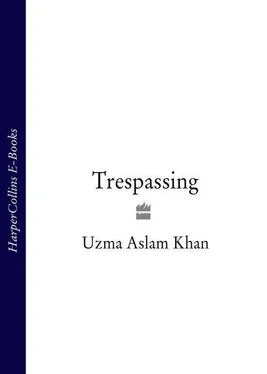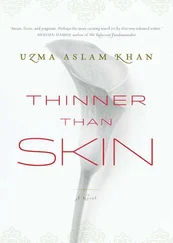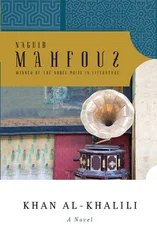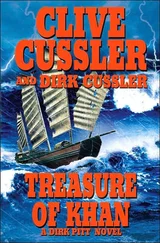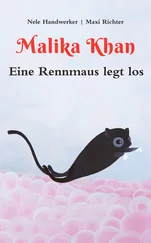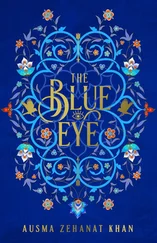A good student of journalism should not accept statements as true till hard evidence is available, particularly not on the brink of war. So an in-depth discussion of the circumstances leading into Iraq’s invasion of Kuwait must be had. We should read the smaller publications that dare to exercise their right under the First Amendment. These might be the ones that are better — as you yourself have said — ‘guardians of the truth’.
‘This is a perfectly reasonable entry,’ mumbled Daanish, looking up from the journal. In red ink, Wayne had written, A weak analysis. Choose another topic. Explore other avenues. ‘What do you mean by exploring other avenues? That’s what I’ve done. No one else in class has touched the topic, though it’s a lot more important than vitamins.’
Daanish was pleased with himself for remaining calm. Though he wrote boldly in his journal, he rarely found the courage to confront Wayne in person. So far, he was doing well.
‘Look,’ said Wayne, shutting the journal abruptly. He leaned forward, fixing him with icy blue eyes. Daanish forced himself to glower back. ‘I can understand how upsetting this must be for you. Miles from home, nostalgic perhaps. Lonely. You’ve done well to get this far. I’m proud of you. Really, I am. It’s good to take pride in your own.’
Daanish was aghast. ‘Pride in my own?’
‘Well, you being an Arab and all, these events …’
‘I’m not an Arab,’ Daanish retorted, before his lips snapped shut. Not this, he thought. Wayne had never accused other students of being swayed because of their backgrounds. But Daanish’s had become a weapon to silence him with, though Wayne couldn’t even get the details right. He opened his mouth before knowing how to say this, and, with the same scorn that he heard in Wayne’s voice, said, ‘Arabs comprise less than thirty per cent of Muslims.’ But this was not his most important point. He sat quietly, listening to his heart race.
Then: ‘I’m a student of journalism. My journal has nothing to do with my religion.’ The next sentence hung on the tip of his tongue: Have I ever questioned your skills based on your faith? He swallowed it.
Wayne leaned back into the swivel chair again. He looked at his watch. ‘Well,’ he shrugged, ‘your role as a budding journalist is to understand that all media persons deal in facts, not opinions. Fact: Saddam invaded Kuwait. We cannot change that by asking why. You’re free to speculate,’ he rotated his arms in a magnanimous gesture, ‘but your speculations are not news. Your opinions have no place on the front page.’
This time Daanish did not pause. ‘But that’s all that’s on the front page! What do you call this?’ He pointed to a page in his thick stack of articles. ‘Headline: More Than a Madman. Are you telling me that’s a fact? And what about him being called a Hitler? They’re actually trying to prove that he’s some reincarnation of him! Did they learn to report in such a factual fashion in college?’
Wayne smacked his fleshy thighs, making to stand up. ‘You’re going to get nowhere by siding with Saddam, young man.’
‘I am not siding with him.’ He was shivering. It wasn’t cold. ‘It’s a sign of my professional commitment that you’re unable to detect my true feelings for the man.’ He paused, determined to let that sink in. His head was pounding now. He’d never stood up to a teacher before. Vaguely, he worried that he was pushing himself off a cliff.
‘I’m asking if the media is presenting us with facts or, or mere labels. Something easy to latch on to so that if there is a war — and would it go through all this trouble if it didn’t know the administration intended one? — there’ll be too much hatred against the “enemy” to question its destruction.’ Yes, he had definitely pushed himself off. His organs swished under his skin. Still he kept on. ‘Who is really being brainwashed? The irony is that the top of this article begins with a photograph of school children in front of a photograph of Saddam and the caption reads: From birth, Iraqis are taught to obey their supreme leader’s every command. The caption could easily read: From birth, Americans are taught to obey their ruling troika: the White House, Pentagon and the Media.’ He sat back, shocked at himself.
Wayne marched toward the door. He waited for Daanish to do the same. ‘I did say you were likely to get emotional. Uh! Uh!’ He held his hand up in a restraining motion. ‘Just listen. I’ll tell you what, you mull over it. The vitamin story may seem mundane to you, but perhaps there’s a lesson here. You’re only a sophomore.’
Now Daanish’s courage did fail him. His voice sank to the bottom of his pants. He bit on his belt. His words were not in his throat, they were in his hands, but as he rolled off the cliff, he let them go.
Another professor passed by the open door.
‘How’s it going?’ Wayne cheerfully greeted her.
They walked away, leaving Daanish in the corridor. He could hear them discuss the venue for the next board meeting.
JUNE 1992
Daanish stood at the window. His head was leaden with yet another night of intermittent sleep. Every morning since his return to Karachi, he’d given up the fight for rest soon after dawn, when the builders arrived next door. He watched now as a bare-footed, bare-chested old man climbed a bamboo ladder, balancing a cement bucket on his feeble head. His hair was dry and bleached, like sugar-cane husk. Between the first two toes of his right foot he carried a trowel. The bucket on his head, and two more in his hands, wavered. With the heel and toes of his free foot, he pressed the sides of the ladder till it steadied. In this way he arrived at the top rung.
The old man handed over the buckets to a younger worker hunkered on the roof. Wiping his face with a wrinkled cloth, he then lit a cigarette, savoring it as though he was the one indoors, standing aimlessly at the window like Daanish.
The sky was a peach-gray pierced by dish antennas, sooty rooftops, telephone wires. There were hardly any trees.
Beyond, but invisible to Daanish, was the sea. Like him, it lapped different shores. On this one, the old man was born on the wrong side of the belt. Here, Daanish could scribble slander on a napkin and hurl it his way. Here, he never had to scrub pots the size of church bells, or clench his jaw in the presence of Kurt or Wayne. If he wanted, he could step outside and lord it over anyone. Simply by crossing an ocean, his place in the universe changed.
The laborer tossed away his cigarette. A figure walked toward him. It was Khurram’s driver, carrying an aluminum pot. He’d seen him at some point every morning, when Khurram’s family did not need him. As on the day he’d driven him home from the airport, Daanish was struck by his good looks.
After the girl in the blue dupatta left the caterpillars, Daanish had asked his uncles what they were but the men brusquely recommended destruction. ‘Forget about that rude incident,’ his chacha had advised.
He couldn’t. So he decided to slip outside with the three fat slugs and ask the construction workers. They passed on the inquiry till it reached the driver, who knew immediately.
‘How?’ Daanish asked, holding the larvae in his palm.
‘My sister works on a farm where they’re bred,’ the man answered. His face was forever expressionless, as if it had simply been jammed.
‘What do you know about them?’ Daanish pushed.
The man moved to Daanish’s other side and asked him to repeat the question. Then he replied, ‘Feed them a lot. When they’ve spun their cocoons, if you want the thread, boil them.’
Читать дальше
Конец ознакомительного отрывка
Купить книгу
